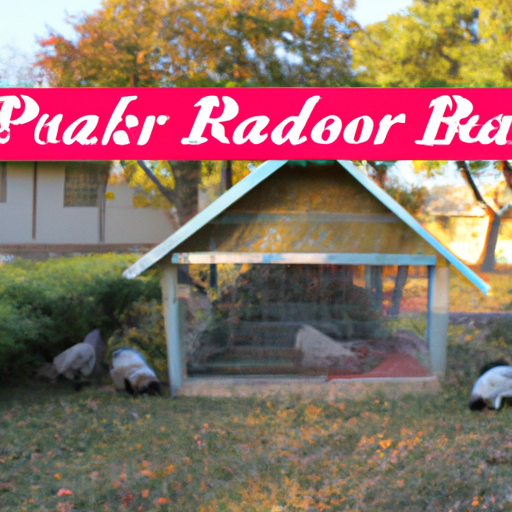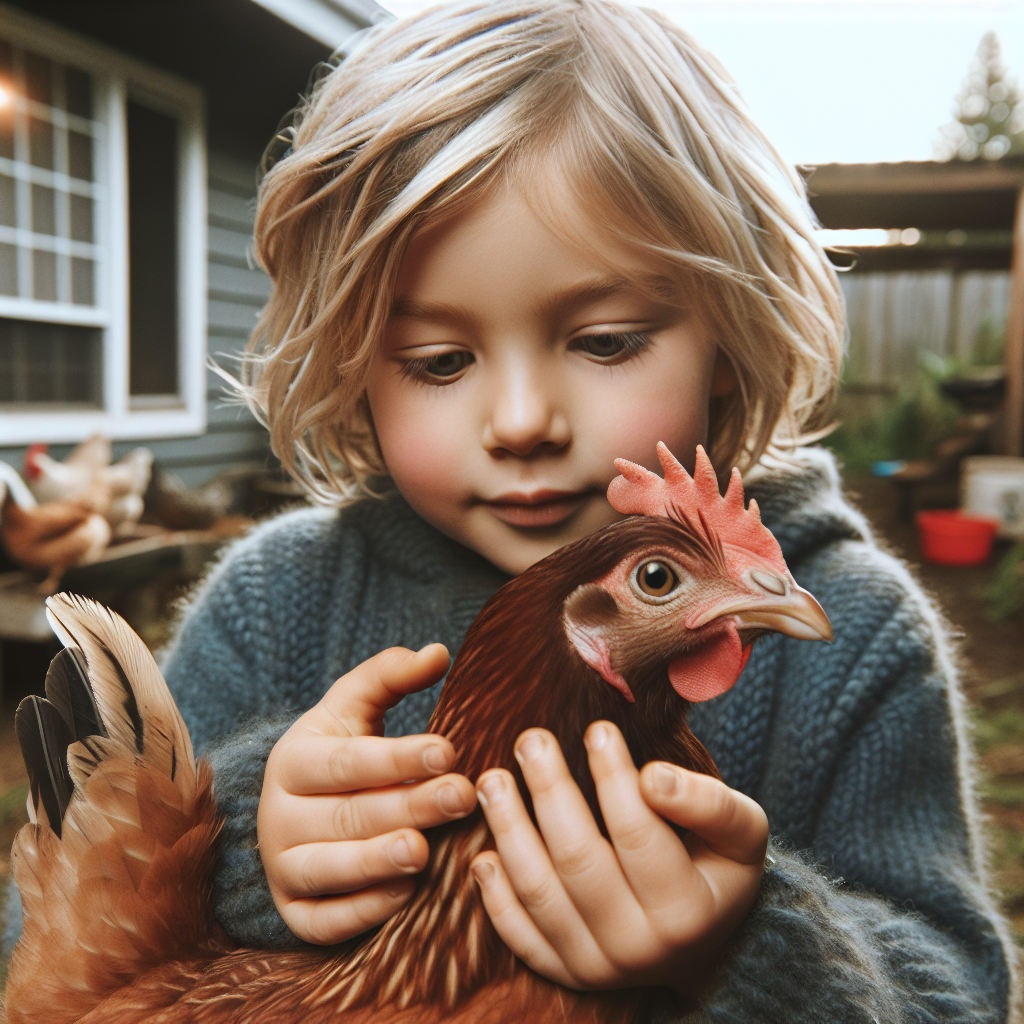Keeping your backyard flock safe from predators is a top priority for any flock owner. Whether you have chickens, ducks, or other poultry, the threat of predators can be a constant concern. In this article, we will explore some effective methods and practical tips to help you ensure the safety and protection of your beloved feathered friends. From fortifying your coop to implementing predator deterrents, we have got you covered. So, grab a cup of tea and let’s explore how you can keep your backyard flock safe and sound.
Types of Predators
As a backyard chicken owner, it’s essential to familiarize yourself with the types of predators that may pose a threat to your flock. Common predators can include raccoons, foxes, coyotes, snakes, owls, hawks, and even domestic dogs. By identifying these predators, you can better understand their behaviors and strategies, which will help in implementing effective protective measures.
Physical Barriers
One of the first lines of defense against predators is creating a secure coop. A well-built coop should be sturdy and have a solid roof and walls to prevent easy access. Ensure that the coop is elevated to discourage digging by predators like raccoons or foxes. Additionally, cover windows and vents with sturdy wire mesh to prevent entry.
Installing predator-proof fencing around your chicken run is another important physical barrier. Use hardware cloth with small mesh size rather than regular chicken wire, as some predators can squeeze through larger gaps. Bury the fencing at least one foot deep to deter digging predators, and make sure it extends at least three feet high to prevent jumping.
For added protection, consider using electric fencing. This type of fencing can create a mild and safe shock that deters predators. It’s crucial to follow local regulations and safety guidelines when installing electric fencing, ensuring it is properly grounded and clearly marked.
Predator Deterrents
Incorporating predator deterrents can help keep potential threats at bay. Motion-activated lights are an effective way to startle nocturnal predators and discourage them from approaching. Install them strategically around your coop and run to create a well-lit environment during the night.
Another option is installing scare devices, such as wind chimes, inflatable predators, or reflective tape. These objects can create movement or noise that predators find intimidating, potentially diverting their attention away from your chickens.
Predator decoys can also be useful. Placing decoy animals, such as owls or snakes, near the coop can create the perception of danger and deter predators from approaching. Keep in mind that moving the decoys regularly can enhance their effectiveness.
Secure Entry Points
Predators are persistent, so it’s crucial to regularly inspect your coop for weak spots and secure all openings. Look for any gaps, cracks, or holes that predators could potentially exploit and promptly repair them. Make sure doors are solid and tightly sealed, preventing any unwanted access.
Windows and vents should be covered with sturdy wire mesh to prevent predators from squeezing through. Regularly check the integrity of the mesh and make repairs as needed. Remember, a predator only needs a small opening to cause havoc, so thoroughness is key.
Proper Roosting Areas
Providing elevated roosts for your chickens offers additional protection, as many predators have a harder time accessing elevated areas. Raised roosts should be at least four feet off the ground to deter predators like raccoons and foxes. Additionally, consider using smooth metal poles instead of wooden ones, as they are more difficult for predators to climb.
Enclosing the roosting area with walls or netting can make it even more secure. This prevents predators from reaching the chickens, even if they manage to access the roosting area itself. Ensure that there are no gaps where predators could squeeze through.
Nighttime Safety Measures
Nighttime poses a higher risk for predator attacks, as many predators are nocturnal. To keep your flock safe, it’s crucial to lock up your chickens at dusk. Train your chickens to return to the coop before nightfall by providing treats or creating a routine. This way, they will instinctively seek shelter as darkness falls.
Implementing automatic door systems can make this process easier. These systems can be set to close the coop door at a specific time, ensuring your chickens are safely locked inside, away from potential threats.
Guard Animals
Using guard animals can be an effective deterrent against predators. Dogs, specifically breeds known for their protective instincts, can help keep your flock safe. They act as a visible presence and their barking can scare off predators. Introduce them slowly after proper training and supervision to ensure they don’t harm the chickens themselves.
Employing geese as sentinels is another option. Geese are naturally territorial and will raise the alarm if they sense any potential danger, often creating enough noise and commotion to ward off predators. Their presence alone can be enough to discourage some predators from approaching.
Safe Feeding Practices
Proper feeding practices can also contribute to the safety of your flock. Clean up any spilled food promptly, as leftover food can attract unwanted visitors. Ensure your feed storage containers and bins are secure and don’t have any openings that predators could access.
Consider using feeding stations or platforms to elevate the food off the ground. This makes it more difficult for predators to access and reduces the risk of attracting them to the immediate vicinity of your chickens.
Breeding and Genetics
Selecting predator-resistant breeds can help improve the overall safety of your flock. Some breeds, such as Ameraucanas, Australorps, or Orpingtons, are known to have better instincts and defensive capabilities. Research different breeds and consult with local experts to determine which ones are better adapted to your specific area and predator threats.
Implementing breeding programs focused on predator resistance can also contribute to the long-term protection of your flock. By breeding chickens with more robust genetics and traits that make them less susceptible to predator attacks, you can gradually enhance the survival rate of your flock.
Developing an Emergency Plan
Having a well-defined emergency plan is crucial to ensure a swift response in case of a predator attack. Know what steps to take to protect your chickens and yourself during such incidents. This includes having proper equipment, such as nets or traps, to safely capture and remove predators.
Creating a predator response team can also be helpful. Share information and best practices with other local chicken owners and establish a network for quick communication and assistance when predator threats arise. Collaborating and learning from each other’s experiences can significantly improve the safety of everyone’s flocks.
In conclusion, safeguarding your backyard flock from predators requires a combination of physical barriers, deterrents, secure infrastructure, and responsible practices. By being proactive and implementing these various measures, you can create a safe environment for your chickens and reduce the risk of predator attacks. Remember, it’s essential to stay vigilant and adapt your strategies based on the specific predator threats in your area. By doing so, you can enjoy the company of your feathered friends while ensuring their wellbeing and protection.




